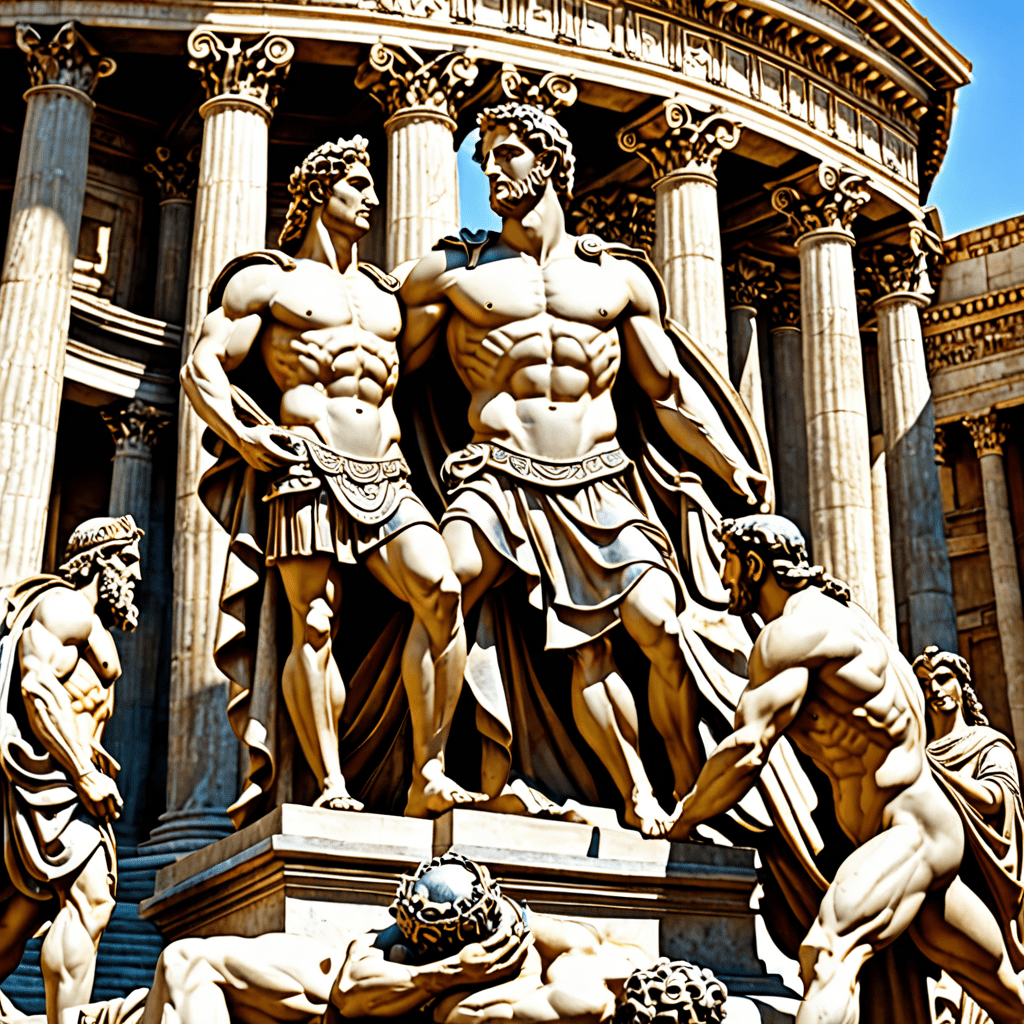Roman Mythology: Gods of Governance and Rule
In Roman mythology, governance and rule were significant aspects of society, reflected in the deities that were worshipped. The Gods associated with governance played vital roles in overseeing various domains, ensuring order, justice, and prosperity. Let’s delve into some of the key Gods of governance and rule in Roman mythology.
Jupiter – The Supreme Ruler and Protector
Jupiter, known as the Roman equivalent of the Greek god Zeus, was the supreme deity in Roman mythology. He was considered the king of the Gods, symbolizing governance, protection, and justice. Jupiter was associated with the sky and thunder, representing power and authority. Romans believed that Jupiter influenced both the state and individual matters, including law and order, making offerings to him for guidance and protection.
Minerva – The Goddess of Wisdom and Strategic Warfare
Minerva, the Roman counterpart of Athena in Greek mythology, was highly revered as the Goddess of wisdom, arts, trade, and strategic warfare. She embodied attributes such as intellect, creativity, and strategic thinking – crucial elements in governance and decision-making. Minerva’s guidance was sought in matters of wisdom, skill, and governance, making her an essential deity for those in positions of power.
Janus – The God of Beginnings, Transitions, and Doorways
Janus held a distinctive role in Roman mythology as the God of beginnings, transitions, and doorways. He was depicted with two faces, signifying his ability to see both the past and future, making him a crucial deity for transitions and transformations. Romans invoked Janus during times of change, especially during the transition of power or at the start of significant events, seeking his blessings for smooth governance and transitions.
Fortuna – The Goddess of Luck and Fate
Fortuna played a pivotal role in Roman mythology as the Goddess of luck, fate, and fortune. While not directly associated with governance in the traditional sense, her influence was profound in matters of destiny and fortune. Leaders and rulers often supplicated to Fortuna for favorable outcomes, seeking her blessings for successful governance and prosperous rule.
These Gods of governance and rule in Roman mythology exemplify the importance of divine guidance in matters of leadership, governance, and societal order. Understanding and respecting these deities provided a foundation for Romans to navigate the complexities of ruling and governance in ancient times.
FAQs about Roman Mythology: Gods of Governance and Rule
Who were the main Roman gods associated with governance and rule?
In Roman mythology, the main gods associated with governance and rule were Jupiter (also known as Jove), Juno, Neptune, Minerva, and Mars. These deities held significant influence over various aspects of governance and rule in ancient Rome.
What was Jupiter’s role in Roman mythology related to governance?
Jupiter was the king of the gods and the god of the sky and thunder in Roman mythology. As the supreme deity, he was associated with governance, protection, and justice. Romans believed that Jupiter oversaw the state and its affairs, ensuring order and prosperity.
How did Juno contribute to governance and rule in Roman mythology?
Juno, the wife of Jupiter, was the goddess of marriage and queen of the gods. In Roman mythology, she was often revered as the protector of the Roman state and its citizens. Juno’s influence extended to matters of governance, especially in the realm of protection and fertility.



